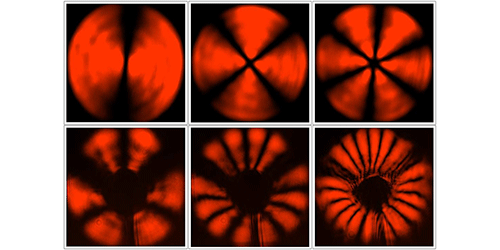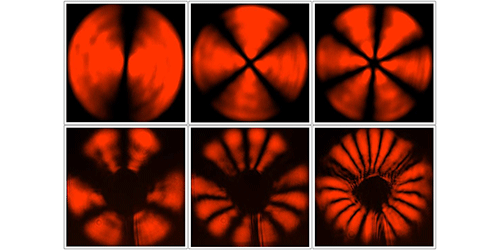Adding Quantum Rooms to the Hilbert Hotel
The Hilbert Hotel is a famous mathematical paradox about an imaginary inn with infinite rooms. Even when completely full, vacancies can be made through coordinated room switching. You obviously won’t find this place in any guidebook, but the energy levels in a quantum system can mimic the rooms in the Hilbert Hotel. In an experiment using optical modes of a laser beam, researchers perform a “room switching” operation that creates a vacancy by transforming one quantum state into another.
In 1924, the mathematician David Hilbert highlighted the counterintuitive nature of infinity with a tale about a hotel with an infinite number of rooms, each having a single occupant. If a new guest arrives, the hotel manager can create a vacancy in room by moving all occupants up one room ( ). If infinite guests arrive, the manager can open up all the odd-number rooms by shifting everyone to twice their room number ( ).
In a recent study, John Jeffers from the University of Strathclyde, UK, and his colleagues showed how to perform the shift in a quantum system with an unlimited number of energy levels. The same group has now extended this work to the shift using a laser beam with discrete orbital angular momentum modes, or “rooms,” which are characterized by petal-like intensity lobes. The team demonstrated a procedure that changes the room state to the room state (but it also works for other multiplication factors like ). This operation could be useful in creating frequency gaps between multiple channels before combining (or multiplexing) them into a single communication signal.
This research is published in Physical Review Letters.
–Michael Schirber





